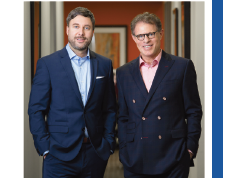Traditional definitions of financial wellness focus on the economic aspects of a person’s life. This focus points to possessing enough material wealth to withstand any reasonable economic shock and allow for the purchase of today’s gratification pleasures but neglects quality of life and peace of mind. A finance-only definition of wellbeing assumes that emotional wellbeing will automatically follow economic stability. This is usually not the case. Fearful penny-pinchers may be wealthy but they are not well. Blissful spendthrifts may be joyful, but the instability of their economic state could easily lead to ruin. Financial wellness, then, must be defined in a way that includes economic and emotional health.
What factors motivate better cash-management, debt-reduction, savings, and delayed-gratification behaviors? Morningstar’s research found that a person’s perspective on time is far more influential than income, age, education, or gender when it came to personal finances. A person’s ability to extend her or his time horizon into the future versus only being able to look at short-term planning resulted in significantly increased savings. In other words, life circumstances matter some but perspective matters more. Having a future-oriented mindset can make the difference between allowing expenses to crowd out one’s income and finding ways to save money.
According to the American Psychological Association, money is the number-one source of stress in U.S. households, regardless of the economic climate. Given that stress leads to health problems, lost productivity, relationship problems, and overall loss in quality of life, it’s clear that the emotional aspects of a person’s financial life are a critical part of their overall financial health. Ideally, economic stability would naturally couple with emotional wellbeing since the ability to withstand shocks should foster a sense of peace and satisfaction. However, emotional satisfaction and financial wealth aren’t always linked. By identifying patterns of thought that may sabotage overall financial health, one can make better financial decisions and increase satisfaction and peace of mind.
In the Morningstar research, people who feel empowered in their financial lives experienced more joy, peace, satisfaction, and pride in their financial lives. The size of impact of empowerment on emotional wellbeing is more than twice as large as that of income. Therefore, a sense of personal power, not money itself, may be the key to emotional wellbeing in our financial lives. It is the feeling of and the belief in our power over our lives–not the exercise of it–that is linked to emotional wellbeing. The solution to feeling disempowered doesn’t necessarily lie in behaving differently, but in a person’s belief that only they can shape their own financial future, that nothing can limit their ability to get ahead, that nothing can stop them—not government, family, or social or demographic interference or pressures. By helping themselves think further into the future and to feel more personally empowered in their financial lives, they can change their economic behaviors and emotional wellbeing over time.
MD Wealth Partners, Inc.: A personal wealth enhancement boutique for select clients. mark@mdwealthpartners.com. mdwealthpartners.com. 805.402.8642. Copyright © Mark Wendell 2020. All rights reserved.



